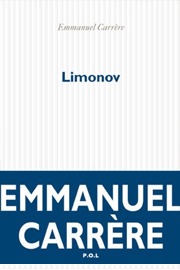Top of the Shelf
When books chase headlines rather than go beyond them, it is tempting to heed Michael Oakeshott’s advice that when a new book is published, it is advisable to read an old one, or at least a book about old things. Much of the early year was spent re-reading modern Indian intellectual history.
I experienced a U-curve on Aurobindo: fascination, distance and then rediscovery. Iqbal’s The Reconstruction of Religious Thought in Islam was philosophically acute, but politically deeply problematic.
Discovering a Hindi translation of Iqbal’s Asrare Khudi by an Indian Railway Service Officer Mohammed Shish Khan was serendipitous. I cannot vouch for the translation, but the 100-page introduction is worth its weight in gold — makes you wonder if amateur scholarship in India has far more insight than petty professional disputes. Lala Lajpat Rai is underrated as a thinker, and Ambedkar repays multiple readings.
Fortunately, Oakeshott’s advice need not be taken too literally. Works of enduring interest continue to be produced. The year’s greatest literary delight was K.R. Meera’s Malayalam novel Hangwoman. It is a marvellous exemplar of the more profoundly cosmopolitan character of «vernacular» literature.
Most Indian writing in English seems narcissistic and parochial by contrast. It has brilliantly conceived characters that have a rare depth and dignity. Its powerful images and a textured sense of history and space makes Kolkata come alive. But more deeply, like all great literature, it is a kind of subtle anti-theodicy: violence meets poetry, Hangwoman meets Tagore’s Gitanjali. Dostoyevsky would have been proud.
Staying with the problem of evil, the French writers Emmanuel Carrere’s book Limonov is ostensibly a novelistic biography of a minor gangster/politician in Russia. But the book is a sombre and irreverent take on the psychological contradictions of 20th century history: its oscillation between murderous utopias and thuggish cynicism. It is also a challenge to liberal moral psychology: Why do characters like Vladimir Putin seem a lot more attractive to people, while well-meaning liberals seem so untrustworthy? A profound question indeed.
The problem of evil also lurks in the single most enjoyable book of the year, Mark Larrimore’s The Book of Job. This is a little marvel of historical scholarship, literary prowess and moral insight. It is published in an exciting series by Princeton University Press on the Lives of Religious Books. This series shows how religious books have been interpreted over history. The changing approaches to Job tell us much about how our moral world has changed. Bernard McGinn’s book in the same series on Summae Theolgoiae is also a model of interpretation.
The same, alas, cannot be said of the one book in the series that appeared this year on Indian texts, David Gordon White’s book on Patanjali’s Yoga Sutra. I am not sure Hindutva will ever colonise India. But the fear of Hindutva is now colonising the mind and scholarship of so many scholars, leading them to exaggerated debunking exercises and wilful misreading of figures like Vivekananda. With Larrimore and McGinn, you get a powerful sense of why these great books matter. With David White, the claim is Patanjali did not particularly matter and that was probably a good thing too. The tragedy of Indian tradition: we have deconstructed it even before knowing what it is. There is no such thing as reading too much Edmund Burke. This year saw the publication of the greatest book on Burke: David Bromwich’s The Intellectual Life of Edmund Burke is not just the subtlest reading of Burke, it is also, through Burke, a profound meditation on all the things Burke wrote about, which are all things we should care about. The two most politically interesting and troubling books mirrored each other. Ari Shavit’s My Promised Land: The Truimph and Tragedy of Israel is beautifully written and quite captivating. But it also reveals the dead end of liberal Zionism. Faisal Devji’s Muslim Zion makes the counterintuitive argument that the model for Pakistan was Israel. As with Devji’s work, the argument is short, sharp, provocative and a critique of all nationalism. Rudrangshu Mukherjee’s Bose and Nehru: Parallel Lives is a sharp account of this extraordinary relationship—where the father-son relationship (Gandhi and Nehru) wins over the brotherly relationship (Nehru and Bose). Interesting counterfactual if Nehru had accepted Bose’s call to join him to make a new India. The compulsory economics read of the year was, of course, Thomas Piketty’s Capital, the blockbuster that speaks to the zeitgeist. The central argument that capitalism has a tendency to produce greater inequality will be debated. But the richness of the data, and the inexhaustible hypothesis about economic history it contains will have to be referred to over and over. An unexpected and entirely original book on economic history is Mariana Mazzucato’s The Entrepreneurial State, which debunks so many cherished myths about the public versus the private sector. And to end the year, two difficult books. Robert Calassao’s Ardor, with his trademark acute readings of books no one can understand: the Brahmanas, with more elusive meditations on sacrifice. Towards A History of Kavya Literature, edited by Yigal Bronner, David Shulman and Gary Tubb, is a collective project with impressive range. It has little gems. But this one from the Satapatha Brahmana stands out. In Malamoud’s translation it goes, «Man is tied to his sin as to his shadow». Back to the problem of evil. Hence, the necessity of reading.
«The Indian Express», 27 december 2014
 copyleft 2012–2020
copyleft 2012–2020